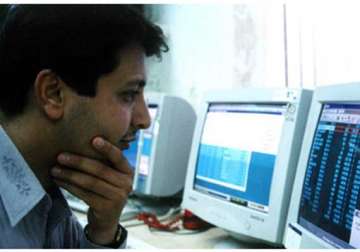Murmurs no longer, shareholder voices get heard in 2014
New Delhi: Taking a big leap from murmurs at 'chai-samosa parties', shareholders made their voice heard loud and clear in 2014 with support from regulators, as they were seen vetoing cushy deals of promoters and

New Delhi: Taking a big leap from murmurs at 'chai-samosa parties', shareholders made their voice heard loud and clear in 2014 with support from regulators, as they were seen vetoing cushy deals of promoters and fat pay packages of top executives.
After stopping quite a few controversial related party deals and forcing better transparency on corporate governance matters this year, the shareholder activism is expected to gain further momentum in the new year, as minority investors -- including individuals, FIIs, mutual funds and insurance firms -- get more serious about their voting power.
Rightly summing up the trend, regulator for over 5,000 listed companies Sebi's chairman U K Sinha said that things are changing for good and shareholder and board meetings were no more like 'chai-samosa parties', as investors and independent directors were making their voices heard.
He also called upon the institutional investors to become more active and act like 'guardians' for smaller shareholders, while voting for the proposals made by the company management.
With stringent corporate governance regulations helping their cause, the emboldened shareholders made the right noises forcing the likes of Maruti, Tata Motors and United Spirits to either re-work or scrap certain proposals.
Mutual funds became more active as stakeholders in companies, especially after Sebi asked them to disclose the rationale for their voting decisions. In addition, they are required to make such details public every quarter.
"Shareholder activism will only increase in 2015 and will help in ensuring better corporate governance practices," Association of Mutual Funds in India (AMFI) Chairman Sundeep Sikka said.
Sikka, also CEO of Reliance Mutual Fund, emphasised that small and retail investors should get a fair voice as well as representation.
"In terms of shareholder activism, mutual funds are playing a big role as custodians of small investors... It is a very good trend," he noted.
Describing shareholder activism witnessed in 2014 as a "big change", proxy advisory firm Institutional Investor Advisory Services (IiAS) said it has been quite a remarkable year.
"Shareholders are getting more engaged and participative. Companies are listening to them... Last year it (activism by shareholders) was a murmur and now it is a shout," IiAS Founder and Managing Director Amit Tandon said.
Right from setting up a new plant to paying higher executive compensation to related party deals being voted out, shareholders ruled the roost in 2014.
In a rare development in the country's corporate landscape, domestic mutual funds opposed a proposal of Suzuki Motor Corp taking over a Gujarat plant from its India unit Maruti Suzuki and selling cars made from that factory back to the Indian carmaker.
Maruti had to rework some provisions in the proposal and is yet to seek shareholders' approval for the same. The auto major is now awaiting implementation of proposed changes in the new companies law before approaching the minority shareholders on this matter.
Delivering another punch in July, shareholders voted against Tata Motors' proposals to increase compensation for its three top executives.
Salary proposals for Tata Motors' executive directors ? Ravindra Pisharody (Commercial Vehicles) and Satish Borwankar (Quality) and Karl Slym (late managing director) were rejected by the shareholders through postal ballot.
Last month, minority shareholders of United Spirits also rejected as many as 9 out of 12 resolutions, including those pertaining to entities connected with its erstwhile promoter Vijay Mallya.
Other instances of shareholder activism include those of Panacea Biotech where related party deals were defeated.
Going back in time, it was the shareholder opposition that blew the lid off the country's largest ever corporate fraud at Satyam Computer Services in early 2009.
The software exporter's founder Ramalinga Raju had to admit cooking up accounts, after institutional investors forced it to shelve nearly USD 1.6 billion worth twin deals to acquire Maytas Properties and Maytas Infra -- two entities that were then under the control of Raju's sons.
Noting that stronger regulations have pushed corporate governance into the centre stage, IiAS's Amit Tandon said that in the wake of rising shareholder activism, companies are engaging more with them.
"Over a period of time, shareholders will be more responsible in exercising their voting rights," he said.